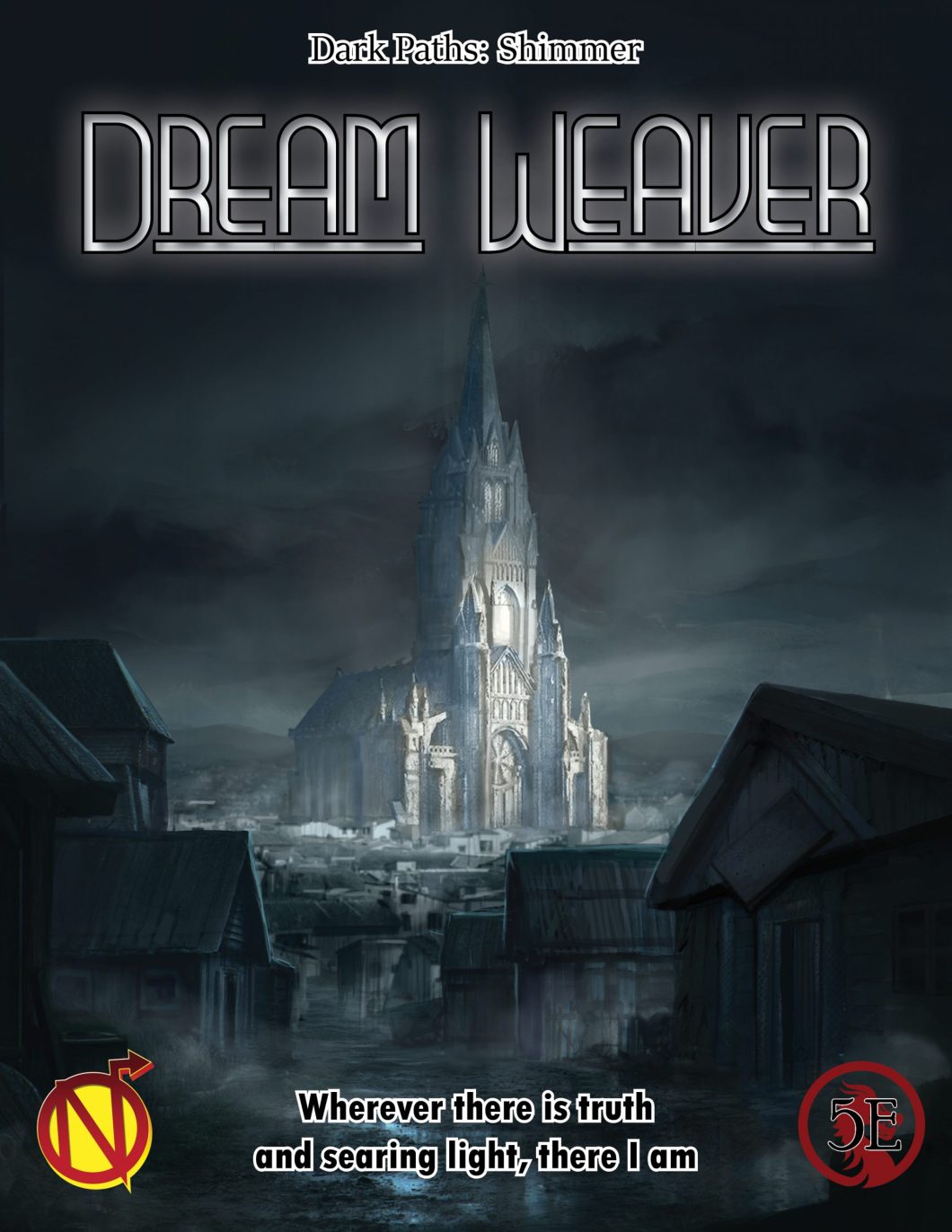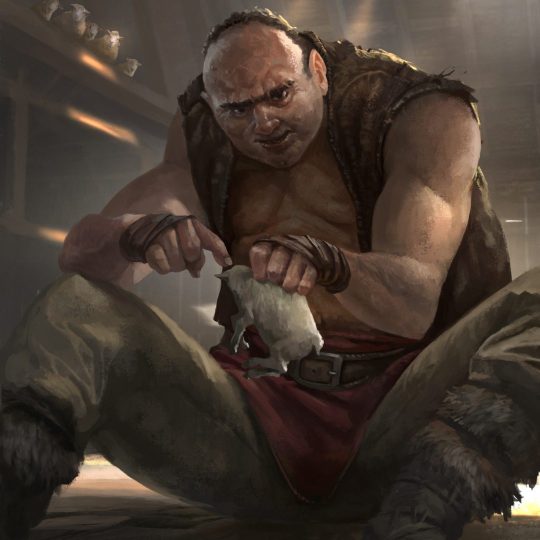
Flex Your RPG Muscles with the Fantastically Flexible Cypher System
Twice in the past I bounced off of Cypher System. The first time was at a convention a few years ago so I took it with a grain a salt. The second time I was invited to play in a live stream game and after a couple of sessions I bowed out. When Nerdarchist Dave pitched a Cypher System campaign for our Tuesday night group on Nerdarchy Live I was hesitant. But I’m so glad I gave it a shot because since then it’s become one of my favorite tabletop roleplaying games. Recently I started a new campaign with friends using Cypher System so having run it myself now I’m excited to share my impressions. Let’s get into it.
Running an RPG made easy
As I understand it Cypher System spun out of Monte Cook Games’ Numenera, which was originally published in 2013. Basically the game system stripped away the dressing like the setting, lore and so forth to present a universal RPG focused on exploration and genre play. You can find several posts here on the website from other writers diving deeper into the mechanics and how to play here.
In this post I’m going to share some of the reasons I dig Cypher System so much after participating in two campaigns as a player and running another as the Game Master. If I settled on a single word to describe the strongest aspect of the game it’ll be flexibility. This manifests in many different ways both in the game system itself and also in practice during play.
One of the key aspects of Cypher System as I see things is the GM rolls no dice — it’s all in the players’ hands. Coupled with the game’s streamlined Difficulty-Target resolution system this creates flexibility because it gives players tremendous control over how any given situation pans out. My high regard for the gamist aspects of games really appreciates how this core and unified mechanic translates so smoothly and easily during play.
Whenever a character attempts something the GM provides the Difficulty on a scale from 1-10 and from this players derive the target number they’ll need to meet or beat with a d20 roll to succeed. It makes a really easy to understand shorthand for judging the odds. During the first session I ran we dealt with challenges across the board in terms of difficulty from the very simplest actions where success is pretty much a foregone conclusion all the way to the limits of what’s possible. These wildly different difficulties regardless of character tier give a GM so much flexibility! It was frankly exhilarating to feel totally unrestricted by striving for balance in all cases.
This leads right to how Cypher System’s flexibility makes the game incredibly exciting for the players too. The way the system works anything with a difficulty 7 or higher is literally impossible to succeed on — without Cypher’s flexibility. Players are free to invest an array of components into the task and thereby reduce the difficulty. Primarily this comes through a character’s Might, Speed and Intellect pools but also includes the various powers and features they possess and perhaps most important (to me anyway) their own imaginations.
I’ll share an example from my first session running Cypher System to illustrate. Two of the characters landed their rocket ship in a long abandoned research facility where the third character lived. (They hadn’t yet met but we played through a really awesome scenario where they all still interacted leading up to this point.) Robotic defenses activated because of their intrusion put the landing party in a tight spot — these two CRAZRS from the rulebook are a Difficulty 5 NPC. One of the characters who’s a hacker thought he’d try to do his special thing, which I hoped for since these particular creatures resist hacking attempts at Difficulty 7 and I bumped it up to 8 due to setting specific details.
At this point all the cards are on the table and everyone knows what’s up. They know whatever they attempt against these robot monsters will remain Difficulty 5 — nothing to sneeze at — except hacking them, which they know is impossible without putting some resources into the task. All the choice resides with the players including whether they’ll wager points from their pools along with any assets or abilities they have against an otherwise insurmountable task. The awesome thing about Cypher System is even if you invest heavily into increasing your odds of success and wind up failing in the end it still feels like a cool moment because you knew it would be really hard going in and you gave it your all knowing the whole time you could very well fail.
Another Cypher System component I adore are GM Intrusions. This is when the GM inserts a complication into the mix and generally applies to an individual character. For example when the character attempted to hack the CRAZRS I might have inserted a GM Intrusion whereby an anti-hack defense activates to purge cyberattacks. They’d need to succeed on let’s say an Intellect check or get shocked by a powerful feedback loop. (Or whatever techno-babble you can think of.) When there’s a GM Intrusion the affected character gets 2 Experience Points — one they keep for themselves and the other to award another character of their choice.
There’s also GM Intrusions whenever a character rolls a natural 1 for any sort of check. In these cases no XP is gained although we play with a house rule that does award the XP even in these circumstances. I think it’s more fun this way and also conveys the idea a character learns through their failures too. When I prepare for Cypher System sessions I’ve gotten in the habit of coming up with a handful of GM Intrusions in advance, which has been very effective. I like to come up with one for each character and these are my way of steering the narrative in different directions or overcoming a lull in game play. Cypher System does a terrific job with their sample NPCs too, which include a suggestion for GM Intrusions tailored to each one too.

In our own products we incorporate this concept through a section we call Something Happens! Most notably in the Dark Paths: Shimmer modules we include this material for the same purpose. These give GMs an opportunity to let players explore more and have some breathing room with a handy way to steer the action without stifling player agency.
Here’s one example of a prepared GM Instrusion from my notes. We decided the session would begin with a character’s space jump from orbit to the surface of Earth:
“QUESTION FOR HIBIKI: Is this a HALO (high altitude – low opening) or HAHO (high altitude – high opening) jump?”
GM INTRUSION: Your chute opens at the wrong time! (too early or too late)”
I like to put the ball in the players’ court often! That’s kinda my GM jam and a go-to move for me to thrust agency upon players and increase their engagement. It works great!
After running Cypher System a few times now I am amazed how easy it is to run and how much fun this game is to play. One of the players remarked how they had a spaceship dogfight, an aerial rescue and a mystery on the surface with all three characters split up inside of two hours and how it was super smooth.
Since I pitched this group on short campaign arcs akin to seasons of a program they’ve really embraced the idea and everyone fell in love with Cypher System. One of my favorite RPG scenarios is introducing someone to a new game or the hobby itself and I get such a kick out of seeing the moment things click for them. In this group’s case it’s the empowered feeling they have for approaching situations on their terms. They love getting creative and overcoming challenges in different ways than violent attrition — and I do too! We’ve already discussed what we’ll do after our first six sessions and as a testament to their newfound Cypher System love they all want to explore different genres, settings and stories but stick with Cypher. (And at least one person even expressed interest in running a campaign too. Woo!)
*Featured image — The cover art for the Cypher System Rulebook illustrates just a few of the genres you can explore with this amazing RPG system. Monte Cook Games also offers a variety of genre specific supplements and games like Predation, The Strange, Numenera, Claim the Sky and more.









Pingback: Nerdarchy on Hacking Cypher System Zoo Mafia RPG – Nerdarchy
August 15, 2022 at 3:24 pm